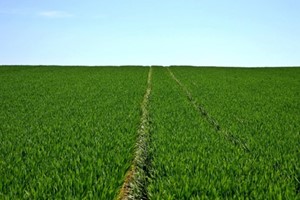Singapore startup Profile Print has developed artificial intelligence (AI) grading methods that allow it to analyze food ingredients ‘directly at the molecular level’, attracting investment from major suppliers including Cargill, Olam, Louis Dreyfus and Sinar Mas.
Current methods to assess the quality, freshness, legal conformity, and market value of food ingredients rely on human skill and machinery that categorizes products by size, shape, and quality.
Coffee grading for example involves evaluating roasted coffee seed color and then tagging the beans as light, medium light, medium, medium dark, dark, or very dark.
A more accurate method uses spectroscopy to measure reflected light from roasted seeds that are illuminated with a light source in the near infrared spectrum, giving a score of the coffee's degree of roast or flavor development.
However, Singapore-headquartered ProfilePrint takes a different approach, incorporating specific parameters that allow the building and training of customized AI-powered models to predict outcomes.
“ProfilePrint expedites existing quality assessment processes and offers suppliers and buyers a common digital reference point, facilitating trade and reducing carbon footprint, as physical samples are no longer required for grading,” says Alan Lai, ProfilePrint’s CEO and founder.
CO2 savings: ‘Physical samples are no longer required for grading’
In the case of coffee, ProfilePrint is able to analyze green coffee beans to predict its profile based on parameters such as flavour, aroma, and uniformity, before even needing to roast or taste it.
The AI technology also appears to effectively handle the inter-sample variation that will inevitably be present in coffee.
“ProfilePrint’s patented food fingerprinting technology is less onerous, and is trained based on today’s assessment standards,” says Lai, who has been at the helm of ProfilePrint for four years.
“For instance, if based on today’s standard, three food samples are considered a ‘Pass,’ even though they are obviously different, then we use AI to learn from such a methodology to predict them as a ‘Pass’ despite inter-sample variance.
“ProfilePrint does not endeavor to change existing grading assessment methods, but to make it more consistent and objective, and less onerous.”
Big name collaboration from key ingredient suppliers
The startup has already attracted the attention of big-name suppliers that have come on board as strategic shareholders, including Cargill, Olam International, Louis Dreyfus Company, Sucafina and Sinar Mas.
Lai noted that these five companies represent some of the world’s largest food ingredient corporations, accounting for more than half of the global food trade. Cargill has also completed successful pilots with ProfilePrint for cocoa in the past six months.
Although ProfilePrint remain tight-lipped as to the sums involved, it has benefitted from an eight-figure investment during its Series A funding round. This will be used to invest in product development and talent acquisition as the firm undergoes future expansion.
Analyzing food ingredients ‘directly at the molecular level’
In addition, ProfilePrint’s technology includes the ability to fully track and identify ingredient traceability and sustainability.
“Instead of QR codes or other blockchain solutions, which can be altered and prone to fraud, ProfilePrint analyses food ingredients directly at molecular level,” Lai explains.
“Beyond the immediate operation efficiency and cost-savings we bring to the supply chain, ProfilePrint’s technology provides traceability features, allowing end-buyers to access digital signatures of the food ingredient – including quality at each stage of the supply chain, geographical and harvest records of the ingredient they consume.
“In terms of sustainability, ProfilePrint helps farmers to be paid more fairly based on the quality of their crops, instead of standard pricing, and ultimately providing more transparency and objectivity in the industry,” Lai adds.
“In addition, all the models created by clients are also proprietary to them, which ensures that they maintain their competitive edge, for business sustainability.”
Future applications: Spices, botanical extracts & olive oil
In looking towards the future, the possibilities remain ripe for exploration as Lai discusses the application of his technology to other ingredients such as spices, botanical extracts, and olive oil.
“As long as there is a molecular signature difference due to their origin, we are able to assess the origin of the food ingredient.
“While it has worked for verticals such as coffee and tea, we are working on deepening our understanding on other verticals.”
https://www.ingredientsnetwork.com/














